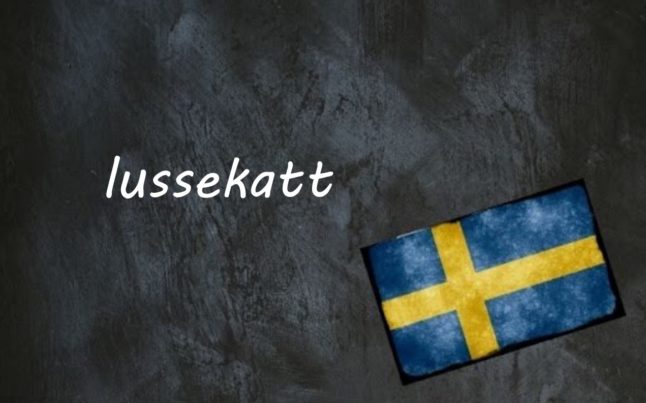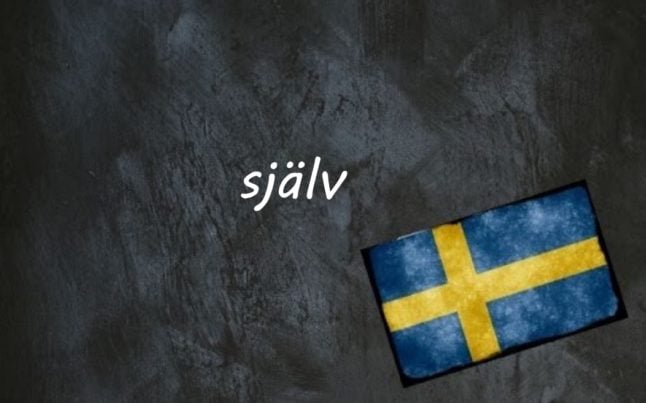Our word of the day today is lussekatt, the bright yellow S-shaped saffron buns on offer on every street corner in Sweden during the Christmas season.
The first half of the word, lusse, is a shortened version of Lucia, and the second half, katt, is the Swedish word for “cat”.
Lucia is easy to explain – lussekatter are traditionally eaten on December 13th to celebrate Luciadagen – or Lucia Day. They are also sometimes referred to as lussebullar.
- READ MORE: The Local’s guide to Lucia in Sweden
The prefix lusse- is also seen in lussebrud – the girl leading the Luciatåg or Lucia procession, often wearing lit candles in her hair.
But what does a cat has to do with saffron buns?
The original name for lussekatter was djävulskatter or “Devil’s cats”. This can be traced back to the 19th century, when a German tradition of baking buns shaped like sleeping cats started to become popular in Sweden. Cats were associated with the devil, who baked the buns and gave them to naughty children at Christmas.
Saffron – which was starting to become widespread as a Christmas spice in Sweden at that time – was mixed in to the buns, as the spice was traditionally seen as having magic powers which could help ward off the devil.
At some point, “Devil’s cats” became “Lucia cats”, probably due to the fact that they were eaten on Lucia Day.
- Don’t miss any of our Swedish words and expressions of the day by downloading The Local’s new app (available on Apple and Android) and then selecting the Swedish Word of the Day in your Notification options via the User button
But that’s not the only link with Satan: Lucia, along with Lucifer (another name for the devil) both share a common root: lux, the Latin word for light.
So, there’s some food for thought next time you’re tucking into a Lucia bun.
Example sentences:
Vi åt lussekatter till fikat i dag.
We had lussekatter with our fika today.
Vill du baka lussekatter på söndag?
Do you want to bake lussekatter on Sunday?
Villa, Volvo, Vovve: The Local’s Word Guide to Swedish Life, written by The Local’s journalists, is available to order. Head to lysforlag.com/vvv to read more about it. It is also possible to buy your copy from Amazon US, Amazon UK, Bokus or Adlibris.



 Please whitelist us to continue reading.
Please whitelist us to continue reading.
Member comments